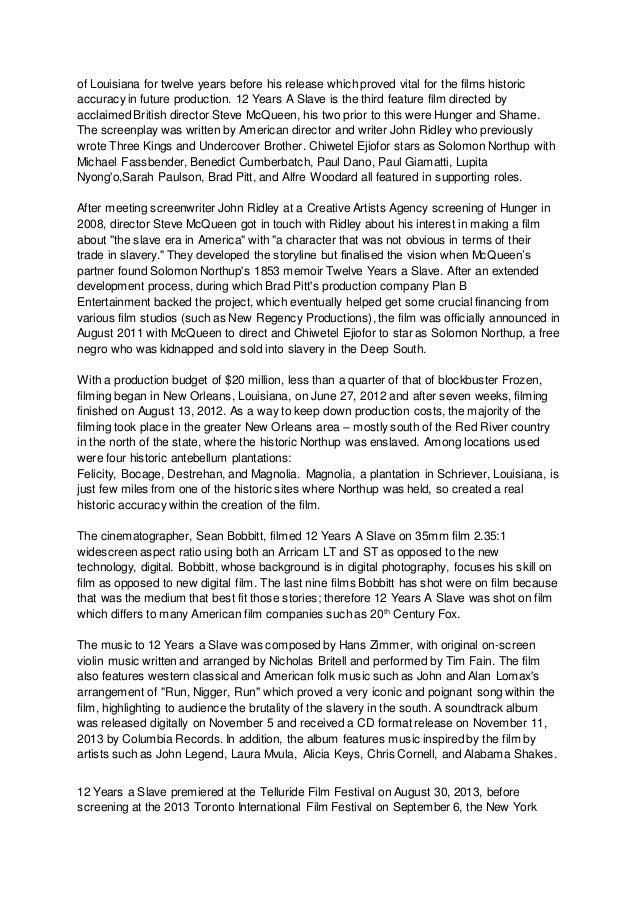
One day he was approached by two white men who made him a generous financial offer to join a travelling music show. He could read and write, was a skilled violinist, had done some farming and was working as a carpenter. In 1841 the 33-year-old son of a former slave was living in upstate New York with his wife and children. Unlike most authors of slave narratives, Northup was not a fugitive when he co-authored his book with a white man named David Wilson: he was a free man who had been kidnapped as an adult and sold into slavery. Photograph: Everett Collection / Rex Feature Vivien Leigh and Hattie McDaniel in Gone With the Wind. Directed by Steve McQueen and starring Chiwetel Ejiofor, Michael Fassbender, Brad Pitt and Benedict Cumberbatch, the film version, which opens in the UK today, has already been hailed as an Oscars front-runner. His book, Twelve Years a Slave, one of the longest and most detailed slave narratives, was a bestseller when it appeared in 1853. The most famous are those by Frederick Douglass and Harriet Jacobs, but the release of a new film has stirred interest in the account of a man named Solomon Northup.

( The Interesting Narrative of the Life of Olaudah Equiano, published in 1789, is widely regarded as the first ever, but Equiano published his book in Britain.) Scholars have identified about 100 American slave narratives published between 17, with many more following after the end of the civil war. The Life of William Grimes was the first book-length autobiography by a fugitive American slave, in effect launching a new literary genre, the slave narrative. At the end of his story the fugitive makes a memorable offer: "If it were not for the stripes on my back which were made while I was a slave, I would in my will, leave my skin a legacy to the government, desiring that it might be taken off and made into parchment, and then bind the constitution of glorious happy and free America." Few literary images have more vividly evoked the hypocrisy of a nation that exalted freedom while legitimising slavery. I n 1825 a fugitive slave named William Grimes wrote an autobiography in order to earn $500 to purchase freedom from his erstwhile master, who had discovered his whereabouts in Connecticut and was trying to remand Grimes back into slavery.


 0 kommentar(er)
0 kommentar(er)
